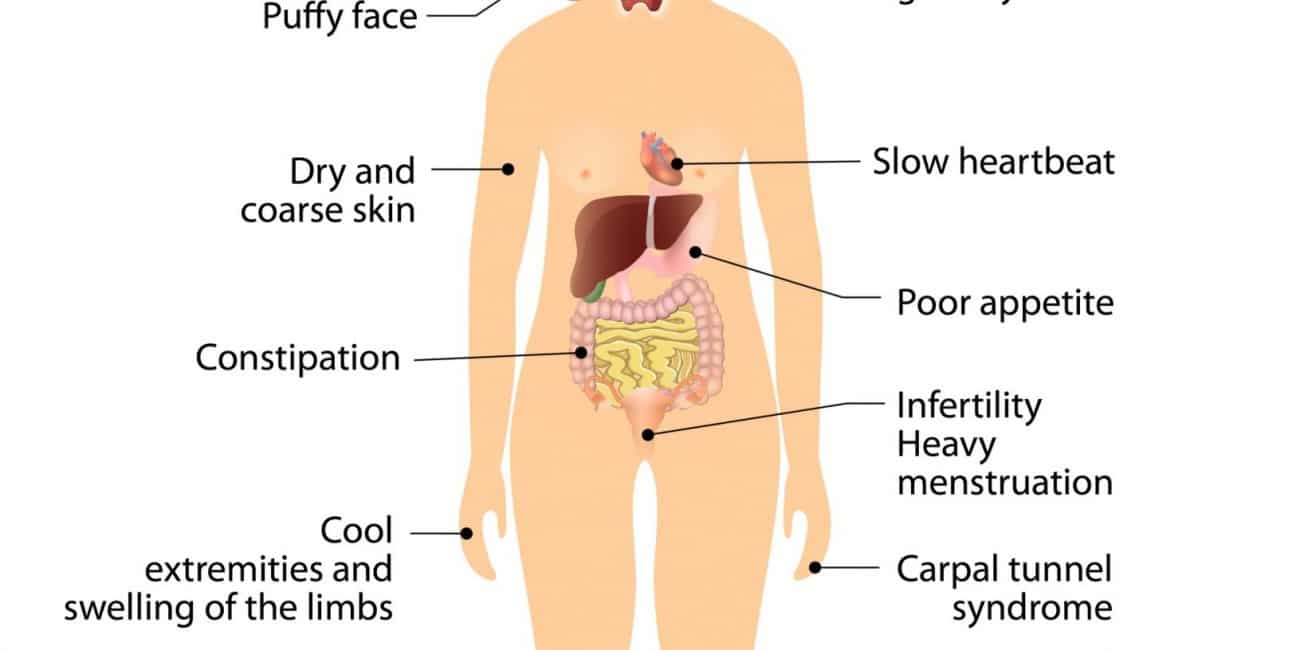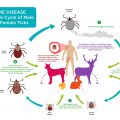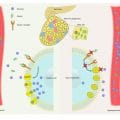Hypothyroidism: most common hair loss cause in women

Hair loss and its connection to Hypothyroidism
Hypothyroidism is one of the main causes of hair loss in women. Your hair mirrors your health so when your body is in shock or under stress, hair cells may shut down. Hair cells are some of the fastest-growing cells in the body and any sign of stress will cause the body to assign and use energy elsewhere.
Hair regrowth usually happens when thyroid hormones are adjusted, inflammation in the body is lowered, and when vitamin, mineral or fat deficiencies are corrected. This usually takes several months and may be incomplete.
It is unusual for mild hypo or hyperthyroidism to cause hair loss; however, nothing is impossible when it comes to thyroid disease. Some forms of hypo and hyperthyroidism come on abruptly and are diagnosed early. Others may be present for months or years before diagnosis.
Hypothyroidism, hair loss and thinning hair
Due to the long hair cycle, hair loss and thinning hair caused by thyroid disease shows itself several months after the onset of thyroid disease. In these cases, hair loss may follow treatment, causing people to incorrectly blame the medicine for the hair loss. This sequence often leads people to withdraw treatment, which in turn may actually worsen the thinning hair and hair fall.
Hair regrowth usually happens when thyroid hormones are adjusted, inflammation in the body is lowered, and when vitamin, mineral or fat deficiencies are corrected. This usually takes several months and may be incomplete.
Why is hypothyroidism such a big deal in hair loss and thinning hair?
Millions of people around the world like you, wake up each day with hypothyroidism without even realising that they’re suffering from it. If you feel you might have hypothyroidism, it’s important to speak with a doctor. Also, start educating yourself as thyroid disease is a very complicated condition and many doctors lack thorough knowledge on the subject.
Hypothyroidism is a confusing and overwhelming illness
Hypothyroidism is a confusing and overwhelming illness and you’ll need to make many adaptions to your lifestyle. I’ve been there and done that (read my Hypothyroid story here). Present-day medicine does have means of catching and treating this exhausting health issue. Unfortunately, even the most well-trained, well-meaning, and understanding doctors may have difficulties finding the right answers when it comes to dealing with thyroid issues.
Nobody knows your body better than you do, so pay close attention to how you’re feeling and take symptoms like thinning hair and hair fall seriously.
Well actually, Hypothyroidism IS a big deal.
The scenarios I’ve just described above are classic symptoms of hypothyroidism and unfortunately, there are a lot more. Women are also more likely to suffer from it. This illness is no joke and we need to take it seriously. I remember when I was hypothyroid I also had adrenal and chronic fatigue and my life just stopped. There were so many moments when I truly wished I were dead.
Hypothyroidism can be treated with medicine but unfortunately, there are still many doctors out there who are not adequately educated to understand how debilitating it really is. It’s also worth noting that from my own my experience, and from other patients’ that I spoke to on forums, just taking medication isn’t enough.
Change your lifestyle, diet, lower inflammation and heal your gut if you want to beat hypothyroidism
You need to completely change your lifestyle and diet, lower inflammation, heal your gut and cut out bad habits like smoking, etc. No magic pill can make you completely better!
If, as you’re reading this, you suspect you have thyroid problems, it’s imperative that you follow those instincts and address them before it gets out of control. Despite what doctors might tell you, yes, it IS important.
Once you get that diagnosis you realise how much of your life you need to change to accommodate it – it can be overwhelming and depressing if you don’t have the correct help.
Dealing with thyroid issues is difficult
Present-day medicine does have means of catching and treating this exhausting health issues. Unfortunately, even the most well-trained, well-meaning, and understanding doctors may have difficulties finding the right answers when it comes to dealing with thyroid issues.
This is why knowledge is so powerful when handling an underactive thyroid. Do your research thoroughly and look into multiple perspectives: both conventional and alternative.
Nobody knows your body better than you do, so pay close attention to how you’re feeling.
Reach out to caring, well informed, open-minded healthcare providers. Ideally, you would want a holistic, conventional, integrative, alternative, complementary-type of practitioner by your side, to help you get better. Your doctor should help you explore the range of thyroid treatments to find one that works best for you. Just because you’ve been prescribed medication, doesn’t mean you have to stick with, especially it if it’s not working out for you. Return to your doctor, explain what’s happening (or not happening) and ask for an alternative.
Don’t suffer in silence
Please don’t suffer in silence because you’re afraid of ‘bothering’ the doctor – this is their job! Be persistent, even if that means returning time and again until they prescribe something that’s effective. If you have a doctor, who refuses to listen, fire him or her and find another one! Don’t give up and remember; you’re not alone.
Could you have hypothyroidism?
The Thyroid is a butterfly-shaped gland that sits low on the neck, below your Adam’s apple, along with the front of the windpipe.
Sometimes hypothyroidism comes on so gradually; you barely realise when it happens. One day you wake up feeling tired and drained. Your hair is weak and falling out and so are your eyebrows. You’ve gained weight and struggle to feel positive in any way – you’re depressed. During regular check-ups with your doctor, you say everything is fine. Many people are so used to feeling sick and tired that they don’t recognise when they are in fact sick and tired.
What I’ve described above are classic symptoms of hypothyroidism. Unfortunately, there’s a very long debilitating list of symptoms (click here to read). The sad thing is that many people think that those feelings are just a fact of life. Women suffer from hypothyroidism more than men. It is important to recognise the long list of symptoms of hypothyroidism and to get the complete treatment you need to live well.
Does your doctor refuse to acknowledge you have a Thyroid condition and is labelling you as depressed, stressed or PMSing?
Speaking to doctors about Hypothyroidism is tough as they often misunderstand the symptoms you describe. They might only narrow in on the word ‘depressed’ and try to treat that condition only. Worse, they might try to blame it on age or claim that it’s all in your head, leaving you to suffer without treatment.
Unknowingly living with Hypothyroidism
Too many people live with hypothyroidism without knowing it at all. If you have had any of the following procedures, pay close attention:
- thyroid removal
- Graves disease
- Nodules
- Cancer
The conditions above affect thyroid functioning associated with hypothyroidism. Shockingly many doctors fail to inform their patients that after treatment of the above medical conditions, thyroid replacement therapy will be necessary.
After reading this page, you may suspect that you are hypothyroid. You may have suspected it for quite a while. If you even have the smallest incline that you could have hypothyroidism, you must get tested.
Just be prepared to fight with your doctor for a thyroid test.
Let’s face it, some doctors don’t listen, some don’t care and many simply doubt your symptoms. You’ll need to be persistent to get the thyroid test you need to confirm whether or not you have hypothyroidism.
Although it’s important to be tested, this won’t always tell the whole story. Your doctor will analyse your results based on your levels of thyroid-stimulating hormone (TSH).
A cause for concern should be when your doctor is only testing you on your TSH when Thyroid or Adrenal problems are expected. While your results may look normal, you could be suffering all the symptoms of hypothyroidism. If that’s the case, be persistent and make sure you get the treatment you need.
Hypothyroidism, exhaustion, overweight and losing weight
If you’re struggling with low energy, fatigue, overweight, extra pounds, low energy, or exhaustion, you might want to look into your thyroid to check if you have hypothyroidism. When it comes to losing weight and managing weight loss, calories matter, but your hormones and thyroid matter even more. In the times when I was severely chronically ill and was suffering from hypothyroidism, I was nearly 20 kgs overweight and nothing helped me to lose weight before I had balanced out my hormones, my thyroid and my diet.
Thyroid Mistreatment by Doctors
Typical hypothyroid treatment doesn’t necessarily cure all of your symptoms. Many people feel unwell on their medication and most doctors dismiss complaints from their patients.
It’s important to recognise that doctors trust in the publications they read, which are often influenced by the pharmaceutical industry. You’re expected to live with your condition, using medication that might mask the symptoms but never entirely solves the problem.
Thyroid diagnostics and treatment can make you sick
People experience all kinds of physical symptoms after having thyroid problems. I’ve heard of people suffering from all kinds of side-effects, ranging from increased cholesterol, depression, lack of energy, hair loss, low libido and more. In fact, many complain that they’re dealing with more physical problems than they had before they were treated for thyroid problems. These symptoms are real. Don’t ignore them and don’t allow any doctor to tell you it’s all in your head.
Some of you are hypothyroid, and your circumstances are a little unique. Hypothyroidism can rear its ugly head at a very tender age. Some children are born with it, and others are diagnosed at a very young age and are prescribed medication.
If you’re the parent of a child with hypothyroidism, it’s important to focus on helping your child overcome the symptoms of it as much as possible. This is also true for those who have had thyroid cancer or menopausal women. A lot of doctors expect you to live with hypothyroidism regardless of the symptoms or struggles that it brings with it. They offer very little guidance as far as thriving.
Is there any Thyroid treatment besides T4 or Levothyroxine?
Typical hypothyroid treatment doesn’t necessarily cure all of your symptoms. Many people feel unwell on their medication, and most doctors dismiss complaints from their patients. It’s important to recognise that doctors trust the publications they read, which are often influenced by the pharmaceutical industry. You’re expected to live with your condition, using medication that might mask the symptoms but never entirely solves the problem.
Some of you are hypothyroid, and your circumstances are a little unique. Hypothyroidism can rear its ugly head at a very tender age. Some children are born with it, and others are diagnosed at a very young age and are prescribed medication. If you’re the parent of a child with hypothyroidism, it’s important to focus on helping your child overcome the symptoms of it as much as possible. This also applies to those who have had thyroid cancer or menopausal women. A lot of doctors expect you to live with hypothyroidism regardless of the symptoms or struggles that it brings with it. They offer very little guidance as far as thriving.
Hypothyroidism: don’t suffer in silence
Reach out to caring, well informed, open-minded healthcare providers. Ideally, you would want a holistic, conventional, integrative, alternative, complementary-type of practitioner by your side, to help you get better. Your doctor should help you explore the range of thyroid treatments to find one that works best for you. Just because you’ve been prescribed medication, doesn’t mean you have to stick with, especially it if it’s not working out for you. Return to your doctor, explain what’s happening (or not happening) and ask for an alternative.
Please don’t suffer in silence because you’re afraid of ‘bothering’ the doctor – this is their job! Be persistent, even if that means returning time and again until they prescribe something that’s effective. If you have a doctor, who refuses to listen, fire him or her and find another one! Don’t give up and remember; you’re not alone.
Which medication is there for hypothyroidism. Is there anything else than T4 Levothyroxine
If traditional treatments for hypothyroidism aren’t working for you, you might want to seek out something different. What alternative treatment exists for hypothyroid sufferers? Are there alternative hypothyroid drugs? Good luck asking your doctor about it and don’t be offended if they practically laugh you out of the office. The medical community is not very open to typical treatments being questioned. But, despite the rigid outlook of the medical community, there are some alternative ways to handle hypothyroidism.
Here are few alternatives medicines for hypothyroidism
T3, also short for Triiodothyronine, is an active hormone at the cellular level. It’s responsible for transporting oxygen and energy to cells, tissues and glands throughout the body.
NDT (or Natural Desiccated Thyroid) is a Thyroid hormone that closely resembles the human Thyroid. The hormone includes the entire dried gland and its contents. This includes all four forms of thyroid hormone (T4, T3, T2, T1), RNA, DNA and co-factors. It provides multiple components missing in Thyroid patients.
And there are also lots of important vitamin and minerals that are supporting your thyroid naturally.
What are the best Thyroid medications?
When it comes to drugs, it’s not a matter of what is the best medication, but rather, what works best for you and your body’s chemistry. One pill that works wonders for one person can have zero effect on another. This is true when it comes to thyroid medications as well.
Your doctor should help you explore the range of thyroid treatments to find one that works best for you. Just because you’ve been prescribed medication, doesn’t mean you have to stick with, especially it if it’s not working out for you. Return to your doctor, explain what’s happening (or not happening) and ask for an alternative.
Holistic solutions to clean living, optimal health and help combat hair loss
If you would like to learn more about hair loss, please check out my hair loss causes page.
Or to discover more information about cleaning living and holistic lifestyle, explore my optimal health page.
Check out the best essential oils to regrow stronger and thicker hair page
My favourite books about this topic are :
Stop the Thyroid Madness: A Patient Revolution Against Decades of Inferior Treatment
Empowering others via my anti-ageing wellness platform and holistic health books
I hope you liked this article about hypothyroidism. If you would like to learn more about my tips and tricks on how to live a toxin-free life or how I saved my hair from falling ensure to check out other pages of this anti-ageing wellness platform.
Or if you want to discover my no BS guides on how to regain your health, hair and life, ensure to check out my holistic anti-ageing wellness books
After a frustrating decade of battling several chronic illnesses, I became disillusioned with the medical system and decided to take my health into my own hands.
Now, through my books and wellness platform, I want to empower people around the world do the same and regain their health, hair, life and beauty!
Let me help you right now!
Receive YOUR Welcome Kit that includes a wide range of topics, from simple and easy healthy brain recipes to clean living, ditching toxic chemicals with loads of practical advice that you can implement immediately
.
References & Resources
–
http://www.btf-thyroid.org/information/109-hair-loss-and-thyroid-disorders
Tears behind closed doors, Avon Books, print 1998, Diana Holmes
Living well with Hypothyroidism, Harper Collins Publishers, first print 2000, Mary J Shomon




